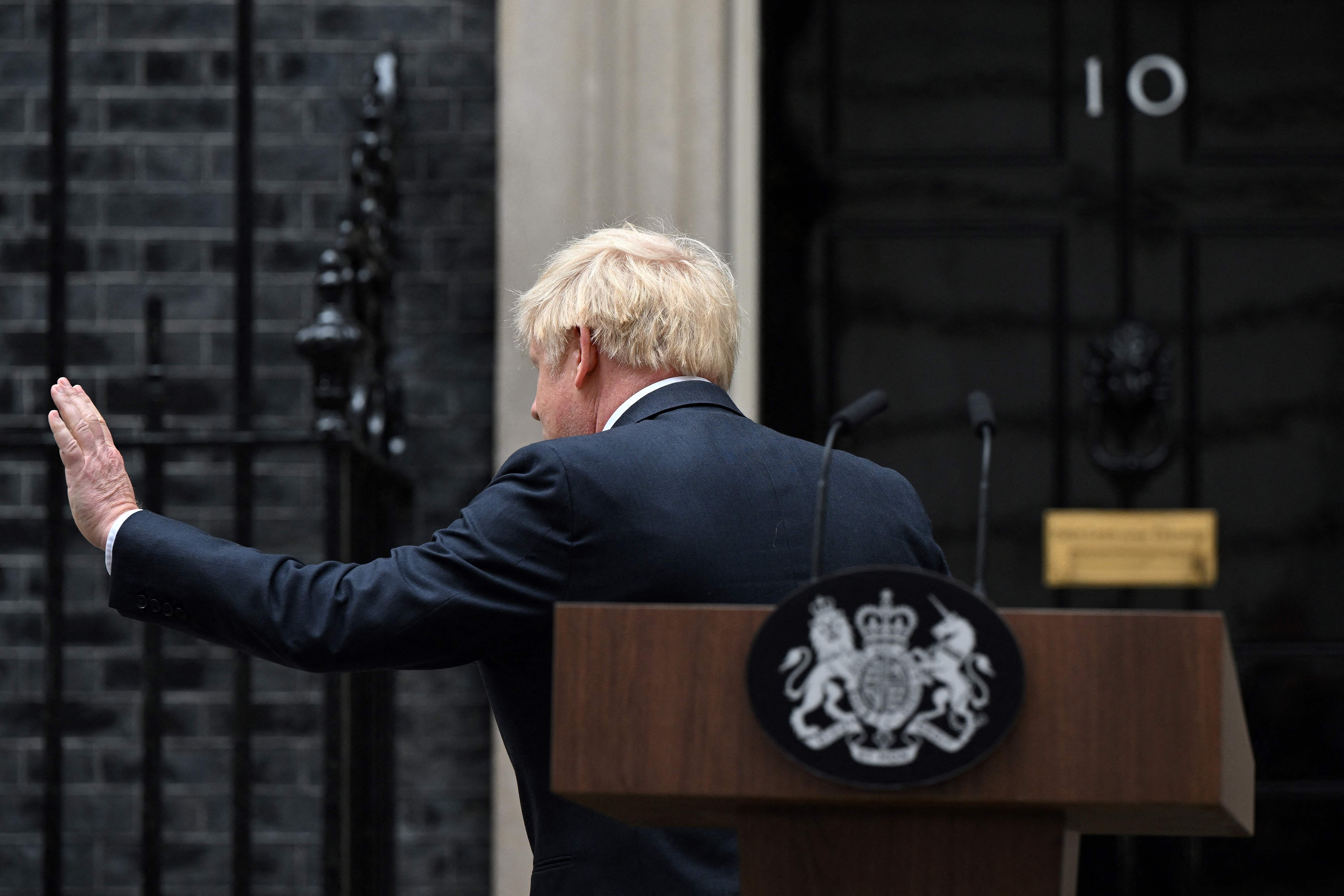The promise of levelling up is fading away with Boris Johnson
Editorial: In a way, it is a good thing – rebranding old-fashioned regional policy with dynamic slogans and soaring ambitions was always something of a cynical hoax

Whatever potential “levelling up” enjoyed, beyond being a boosterish slogan, it has made relatively little difference to the many communities who assumed it to signal imminent transformation.
According to IPPR North, a left-leaning think tank, “public spending remained lower in the North than it did England-wide, during the course of the agenda”. Public spending in London is higher per person than in the North, as ever, but has also increased relative to the North. Some of that can be accounted for by London’s special reliance on commuting and the concomitant public transport subsidies, and those rose during the lockdowns; but it is a disappointing indicator nonetheless.
Sad to say, there were, and are, so many “left behind” towns and smaller cities in need of regeneration that to level all of them up to the sort of prosperity enjoyed across much of the South East would mean spending the kind of money that would be difficult to find even in better times.
Now, with the economy facing stagflation and recession, “levelling up” sounds more like a cruelly deceptive broken promise. There was little that was revolutionary in the long-delayed levelling up white paper, and there’s more to fixing towns and cities than renaming a government department in its honour. Michael Gove failed to make a go of it, and his successors will enjoy even less luck with gaining Treasury funding.
Liz Truss’s avowed priority is substantial tax cuts, which will benefit the rich South disproportionately; and Rishi Sunak wants to beat inflation by tightening his control of spending before he too cuts taxes – again, something that won’t especially help struggling neighbourhoods, where wage levels are depressed and many are reliant on social security, paying little tax of any kind. The food banks will continue to struggle with demand, and mostly in the poorer neighbourhoods – including substantial pockets of poverty in London, and the isolated east and South West of England.
Apart from some isolated relocations of government departments, small-scale urban renewal, and free ports (which usually merely divert investment from other poorer communities), correcting regional disparities in opportunity remains almost as far away as ever. No wonder Mr Sunak and Ms Truss hardly permit the words “levelling up” to fall from their lips. The whole thing has become an embarrassment.
It has sometimes been said that “if Boris goes, Brexit goes”. That seems wider of the mark than ever, now, given that the UK already has what was once considered to be a hard Brexit, the Conservative Party is basically now Ukip Mk II, and even Sir Keir Starmer and the Labour Party have pledged no return to the EU, its customs union or its single market.
Incidentally, rejoining the EU would probably lift the fortunes of left-behind communities far more quickly and dramatically than levelling up, though that seems to be an unrealistic ambition.
But “If Boris goes, levelling up goes” has the ring of truth about it. In a way, it is a good thing. Rebranding old-fashioned regional policy with dynamic slogans and soaring ambitions was always something of a cynical hoax. Far better to return to some older truths about permitting market forces to do their work, with the state protecting the poorest and smoothing industrial change, rather than picking winners and randomly favouring certain towns and cities – often, it appeared, on the basis of their marginal electoral status. Such pork-barrel politics is corrupt and wasteful, and ultimately counterproductive.
To keep up to speed with all the latest opinions and comment, sign up to our free weekly Voices Dispatches newsletter by clicking here
Incentives to entrepreneurs may seem to be more important in Barnsley than in Bromley, say, but in essence they are the same. Too much of levelling up was about public infrastructure investment, with much less concern about productive private sector investment and job creation – the very things that propelled the likes of Bradford and Rochdale to pre-eminence in the Victorian era.
Areas such as Dagenham or Clayton, plainly in the South, suffer far greater disadvantage than Macclesfield or Hallamshire. Indeed, there is poverty and poor housing to be found even in the richest boroughs – Kensington and Chelsea springs to mind. Geography has its limits as a framework for economic policy.
Well-paid skilled, semi-skilled and unskilled jobs in sustainable, efficient private enterprise is what the manufacturing and industrial centres of the North and the Midlands used to enjoy in abundance. That is really what the citizens of those proud places want back. There remains little sign of it, and no amount of ministers turning up in hard hats and hi-vis jackets can disguise that uncomfortable reality.
Without Mr Johnson, even the aspiration to level up may quietly crumble away, rather like a semi-redundant 1960s concrete shopping centre.






Join our commenting forum
Join thought-provoking conversations, follow other Independent readers and see their replies
Comments